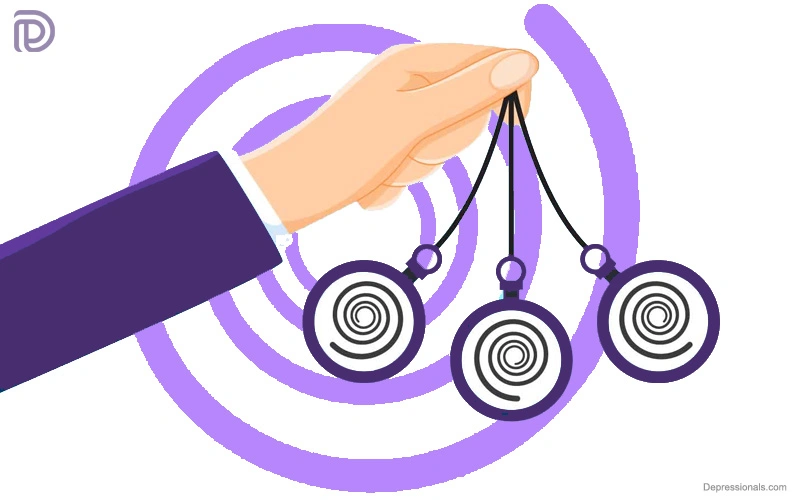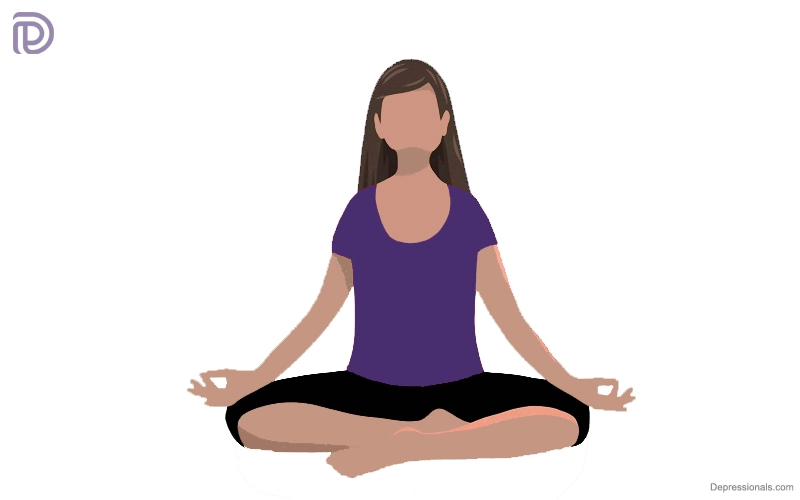Hypnotherapy is an adjunctive method of treating health conditions or specific symptoms through hypnosis. When someone is subjected to hypnotherapy, they are put into a state of hypnotic awareness that allows them to experience detached external attention and concentrate on their internal experiences.
Some people use it in the treatment of anxiety disorders and phobias. A variety of other applications are also possible, including pain management, weight loss and quitting smoking.
Hypnosis began to gain scientific credibility only in the 21st century, after formal explorations began in the late 1700s. Researchers today are exploring the use of hypnosis, the conditions that it can treat, and how it compares with other treatments.
Read: Applied Behavior Analysis (ABA)
Hypnotherapy techniques
When people undergo hypnotherapy, a trance-like state is induced and they become more focused, responsive to suggestions, and relaxed. The hypnotic state allows you to focus more deeply on a problem because of the heightened awareness of the hypnotic state. Hypnotherapy includes the following techniques:
- Relaxation: When confronted with problematic behavior or the object of your fears, the hypnotherapist will help you imagine yourself in a peaceful state of relaxation while confronting the problem.
- Suggestion: If you need help conquering an issue, your hypnotherapist may suggest gentle changes in your behavior. A phobic reaction, for instance, may be treated as a learning experience, which will teach you to trust yourself and your ability to overcome the fear.
- Learning how to cope: Some cognitive-behavioral coping strategies may be taught to you, such as guided imagery and the STOP! technique, which can help you deal with anxiety or fear.
- Analysis of past experiences: If possible, you might even be encouraged to describe how you felt the first time you encountered the problem or behavior you are trying to overcome.
How hypnotherapy can help
Several reasons may motivate someone to try hypnotherapy. Research indicates that applications may include:
- Chronic pain conditions
- Dementia symptoms
- Chemotherapy-induced nausea and vomiting
- Surgical or dental pain
- Several skin conditions, including psoriasis and warts
- Symptoms of irritable bowel syndrome (IBS)
- Symptoms of attention-deficit/hyperactivity disorder (ADHD)
Medical professionals such as psychologists and doctors may use hypnotherapy to treat conditions such as anxiety disorders, depression, eating disorders and post-traumatic stress disorder (PTSD).
Hypnotherapy can also have a positive effect on reducing or changing problematic behaviors. It is often used for this reason to help quit smokers, lose weight and sleep better.
Read: How to Get Peace of Mind
Benefits of hypnotherapy
Hypnosis may be able to produce dramatic results in some individuals. For other people, it may give them a feeling of relaxation. Hypnotherapy may provide the following benefits:
- Awareness: Not everyone remains fully aware during the whole experience. The hypnotized person remembers all that happened and can even speak while under hypnosis. Other people may even feel detached from what’s happening as they relax so deeply.
- Concentrate: Our surroundings tend to distract us most of the time. It can be difficult to completely concentrate when the TV is blaring or your children are clamoring for attention. We also have overloaded minds. There may be something on your mind right now — a bill to pay, a project to complete, or a dinner date to plan. You are expected to focus completely on the problem being addressed during the therapy session, letting you move beyond the worries of the day to day.
- Relaxation: Hypnosis is a deeply relaxing experience. The subconscious mind is greatly aided by the quieting of the conscious mind. It also makes it easier to face your problems or fears since you are calmer.
In most hypnotherapy sessions, clients are reassured that they are safe and that they can face their problems objectively without fear of harm. They do this by using phrases such as “you are safe” and “no one can harm you.”
Hypnotherapy effectiveness
Individuals and how hypnotherapy is used can change the effectiveness and impact of the therapy. It has been shown that hypnotherapy is effective for certain applications, namely:
- Controlling and reducing pain during dental procedures and birth
- Mitigating nausea and vomiting associated with chemotherapy treatment for cancer patients
- IBS symptoms are reduced to a certain extent
It is possible to use it as a supplement to treatments for stress and anxiety, such as cognitive behavioral therapy (CBT) and medications.
The Journal of Affective Disorders recently reviewed a study that found that hypnotherapy did not result in less effective treatment of mild to moderate depression than CBT. Results showed that CBT reduced symptoms to 38.5%, but hypnotherapy reduced them to 44.6%.
The use of hypnotherapy in the treatment of various conditions is likely to become more accepted as researchers examine its potential uses in the future.
Read: Opioid Use Disorder
Considerations
The safety and well-tolerance of hypnotherapy does not mean that there aren’t occasional risks. These include:
- It is possible to get false or distorted memories from hypnotherapy in some cases.
- The sense of personal control may decrease for people who are highly suggestible.
- Side effects of the medication include anxiety, headaches and dizziness.
- Those suffering from psychosis, such as hallucinations or delusions, may not be suitable for hypnotherapy.
Therefore, a doctor must be consulted before using hypnotherapy. Make sure to only try hypnotherapy with guidance and supervision from a qualified expert.
Most common misconceptions
There are still many mental health professionals who do not believe that hypnotherapy is effective. The perception of hypnotherapy can be affected by myths and misconceptions about it.
- The terms hypnotherapy and stage hypnosis are often confused. The stage hypnotist is an entertainer who can read people well. Extroverts who can wow the crowd are sought. It is debatable whether or not these stage hypnotists are hypnotizing their subjects, but they are willing to follow the sometimes-outrageous suggestions made by them.
- Hypnosis does not cause forgetting. In a hypnotic trance, there is no sleeping or unconsciousness, and you will be able to break the trance at any time. In other words, you will remember all the things that happened during your hypnotic state.
- Hypnosis does not cause a loss of control. The patient remains in control throughout the process hypnosis. The ability to force you to perform a particular task is not possible, even when you are under hypnosis. It is likely that you will be absorbed in the work at hand, and will therefore not pay attention to your surroundings. However, you will always be in control of your actions, decisions and remarks.
- There is no correlation between being hypnotizable and being less intelligent. It is true that some individuals believe that they cannot be hypnotized. However, it has been established that most people can be hypnotized to some extent. Approximately 10% of people have difficulties getting hypnotized or cannot be hypnotized at all.
Read: Shared Psychotic Disorder
What are the drawbacks of hypnosis?
People who are struggling with psychotic symptoms, such as hallucinations and delusions, or who are using drugs and alcohol may not be suitable for hypnosis. If a person has a physical disorder that may require medical or surgical treatment, then it should be used only after a doctor has evaluated the person. Psychosomatic disorders may also be treated less effectively through hypnosis than through more traditional methods, such as medication.
They believe these repressed memories are related to the individual’s mental disorder and therefore use hypnosis to retrieve them. However, there is some uncertainty about the accuracy and reliability of the information that hypnotized patients recall. Also, hypnosis can generate false memories — usually by accident or as a result of leading questions put to the patient by the therapist.
Due to these reasons, most psychotherapies no longer include hypnosis as a common therapy. Hypnosis also remains controversial for certain types of mental disorders, such as dissociative disorders, where patients may be particularly susceptible to suggestions.
Risks of hypnosis
There is no danger in hypnosis. Hypnosis does not involve brainwashing or mind control. No one can be forced to do anything embarrassing or against their will by a therapist. Since false memories can potentially be created, it is a risk for creating false memories, and it is less effective than other, more traditional and established psychiatric treatments.
Other, more established and traditional forms of psychiatric treatment may be more effective than hypnosis. It is not recognized as an alternative to conventional treatments for serious mental illnesses such as schizophrenia, bipolar disorder or major depression.
Read: High Functioning Anxiety
Who performs hypnosis?
Psychotherapists who specialize in this technique perform hypnosis, which requires a license or certification.
A guide to getting started
Find a hypnotherapist with a good reputation in several ways. It’s always best to get a referral from a friend. If you have a mental health practitioner who is hypnotherapy-certified, or knows one who is, they may be able to provide it. Talk to someone you know who has been through this type of therapy to find out how it went. But bear in mind that some hypnotists only focus on a specific issue, so you may not be able to find a therapist who matches your needs.
Many experts believe that hypnotherapy can work, despite its controversy in some circles. Talk to your healthcare provider regarding this treatment option. Make sure you have checked with your insurance company as well, since not all insurers cover it. You can search the database of the National Board for Certified Clinical Hypnotherapists to find a hypnotherapist in the United States, Great Britain, or parts of Europe. Hypnotherapists are certified by this organization, which keeps its database up-to-date.






I think this is one of the most vital information for me. And i’m glad reading your article. But should remark on few general things, The web site style is great, the articles is really great : D. Good job, cheers|
Really Appreciate this post, can you make it so I receive an email whenever there is a new article?